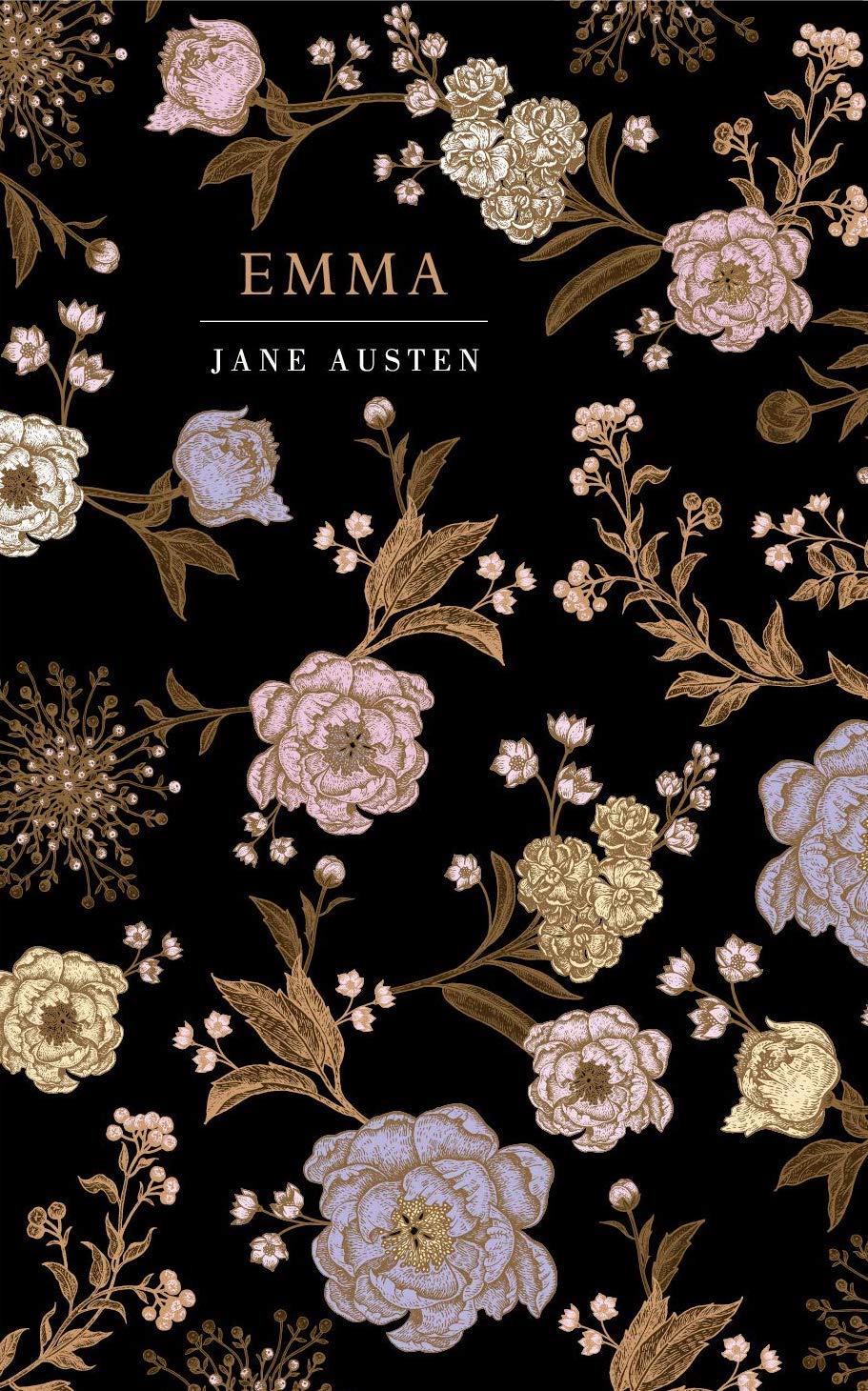Emma by Jane Austen
My review
4/5 stars
I've loved Jane Austen for as long as I can remember, but I'm slightly ashamed to say that I've gone all this time without reading two of her novels and am only familiar with the stories via TV/movie adaptations. I've decided that this year is the year to remedy that situation; I'll be reading Mansfield Park (my other unread classic) later in the year, but Emma is up first.
Emma has always been a story I've enjoyed, but it's never been my favourite Austen plot; my opinion hasn't changed now that I've actually read the book. Like the adaptations I've watched over the years, the story lands better if you read it as a satirical, tongue-in-cheek commentary on Regency upper-class society. If you can appreciate that Austen probably didn't mean for this book to be taken seriously, it's much easier to digest.
Emma was initially quite a difficult lead character to read, being portrayed as a snobbish, self-absorbed, naive young woman. I think the fact that she's unlikeable is a purposeful plot device - you are supposed to find her annoying otherwise the story doesn't work. She is a caricature of a woman that I'm sure Austen encountered many times in her social circles, and is reflected in other lesser-known characters that she wrote, such as Lucy Steele and Louisa Musgrove. The difference between those characters and Emma is that we see enough of a focus on Emma that we're able to see an obvious redemption arc with her.
The fact that Emma was so unlikeable to start off with meant that I really struggled with the book's pace, especially the first volume. I pushed through and was rewarded with things picking up from the middle onwards and reaching a satisfying conclusion.
A big part of Emma's character development comes from her ongoing relationship with Mr Knightley. Austen has a talent for writing leading men that have struck a chord with her readers for over 200 years, and Mr Knightley is no exception. He was sensible and mature, but no less delightful or charming because of it, in fact it's part of his appeal. He provided a great counterbalance for Emma's silliness, and I really enjoyed that he evidently just wanted the best for her and gave her the space to figure things out on her own. Mr Knightley is definitely in my top three Austen heroes, along with Mr Darcy and Captain Wentworth.
Reading the secondary characters gave me a totally different experience to what I expected. Mrs Weston has always appeared to be a loving, caring elder sister type in any adaptations that I've watched, but the original material shows her to be an over-indulgent friend who leaves Emma's less desirable childhood behaviours unchecked, despite her role as Emma's nanny. Similarly, I've always interpreted Miss Bates as a well-meaning, genteel lady who spends far too much time focus on the minute details of life in her very small world, and while all of this is still true in the book, I found her much more irritating to read than to watch. Her never-ending sentences, scattered regularly throughout the book were hard to read, even if they did offer helpful clues to the plot. On the flip side of the coin, adaptations that I've watched have always favoured a portrayal of Mrs Elton that makes her snobby and uptight; while this is clearly taken from the source material, something is missed in the nuances of how Austen wrote her in the book - she's much funnier on the page than on the screen.
The ultimate character change that I took away from the book was Mr Woodhouse. I've always pitied him as a nervous, lonely old man with a potential mental affliction that wasn't properly understood at the time (like anxiety or agoraphobia), but I've come away from my reading experience feeling a lot less generous towards him. The book shows him off as a selfish, indulgent, pushy parent who appears to be the main driver behind Emma's early personality flaws. He is a know-it-all (or at least he acts like one) who imposes his somewhat ridiculous opinions on life on others around him and makes everyone work around him in all situations - this is seen most evidently in how his eldest daughter acts. Sadly, after reading this book, I find myself more likely to put Mr Woodhouse in a club with Austen's other "bad parents" like Mrs Bennet and Colonel Tilney.
Reading Emma has definitely given me a deeper understanding of characters that I already knew and loved, and I did end up enjoying my reading experience, but I don't think this is a book that I'll be reading over and over again like I do with some of Austen's other classics.
Book blurb

Emma by Jane Austen tells the story Emma Woodhouse, a rich, clever, and beautiful young woman, has just seen her friend, companion, and former governess, Miss Taylor, married to a neighbouring widower, Mr. Weston. While the match is suitable in every way, Emma cannot help sighing over her loss, for now only she and her father are left at Hartfield. Mr. Woodhouse is too old and too fond of worrying about trivialities to be a sufficient companion for his daughter.
The Woodhouses are the great family in the village of Highbury. In their small circle of friends, there are enough middle-age ladies to make up card tables for Mr. Woodhouse, but there is no young lady to be a friend and confidant to Emma. Lonely for her beloved Miss Taylor, now Mrs. Weston, Emma takes under her wing Harriet Smith, the parlor boarder at a nearby boarding school. Although not in the least brilliant, Harriet is a pretty seventeen-year-old girl with pleasing, unassuming manners and a gratifying habit of looking up to Emma as a paragon..
More...
You can buy a copy of the book here.
For more on the author, you can head over to the Jane Austen's Centre's website.




